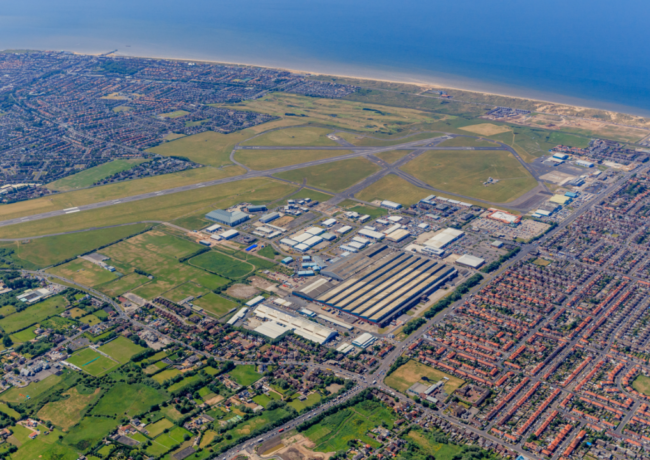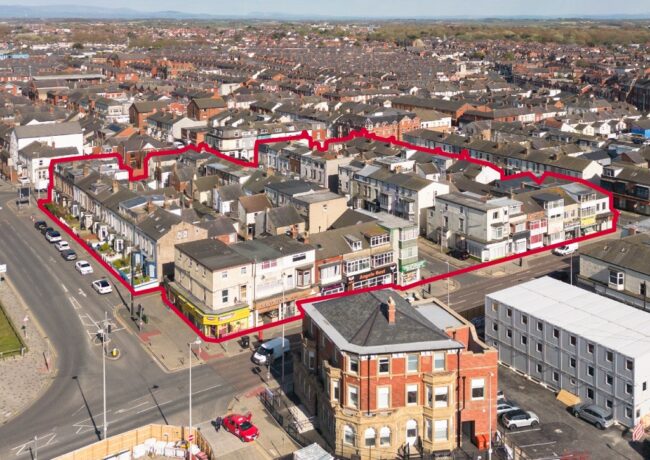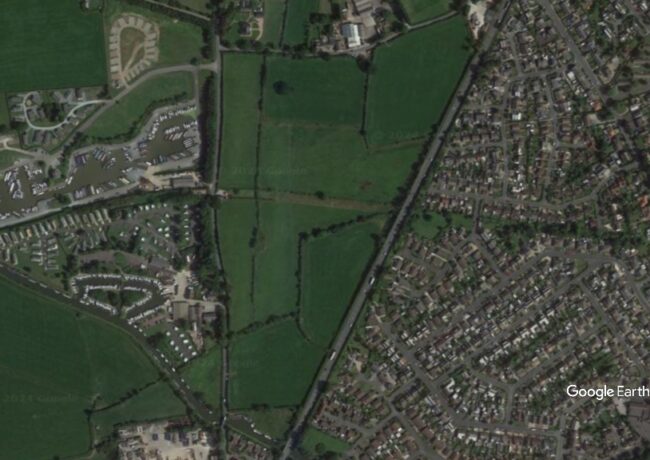Blackpool warns on ‘marginal viability’ for airport infrastructure
Blackpool Council has been warned that infrastructure-led development at Blackpool Airport Enterprise Zone has “marginal viability” with each element of enabling works likely to be “subject to a detailed business case” before approval.
The 356-acre Enterprise Zone, one of the largest projects of its type in the country, is slated to provide a mix of office, industrial, retail, and leisure space.
In a report to Blackpool Council advised by Mott MacDonald, Rob Green, head of enterprise zones for the council said the capital investment required for enabling infrastructure works, including property acquisitions for infrastructure site assembly, would be “many millions over the life of the Enterprise Zone, with the bulk of expenditure required in the crucial early years”.
The report added that the expected retained business growth across both Fylde and Blackpool from the Enterprise Zone would “just be sufficient to cover costs, including the costs of prudential borrowing by Blackpool Council”.
Consultation on the Enterprise Zone closed in December 2017, and following more than 100 responses, the masterplan, prepared by IBI, How, and Mott MacDonald, was endorsed by both Blackpool and Fylde councils in February this year.
The site straddles the boundary between Fylde and Blackpool, with much of the site sitting within designated greenbelt. It has multiple stakeholders with around 40 freehold and leasehold property interests, as well as 200 occupiers.
Blackpool Airport, which was sold by Balfour Beatty to the council last September for £4.25m, forms the largest part of the site. York Aviation is currently preparing a strategic business plan for the airport, which is due to complete in May.
This will present options for any interventions needed to “deliver a long-term sustainable airport”, but Green also said this could “likely result in some modifications to the masterplan in terms of the current indicative locations for control tower, aprons, and hangar accommodation,” as well as the proposed offshore helicopter terminal.
Options for the site include offices ranging between 27,000 sq ft and 2,000 sq ft; a 10-acre bus depot; an 80-bedroom hotel, and a 32,000 sq ft training college.
The Enterprise Zone is also expected to host a range of industrial units, with design and build opportunities for projects between 540,000 sq ft and 10,800 sq ft.
Other potential developments include a gym, pubs, restaurants, and residential.
These will be delivered on a phased basis over 25 years, with the first phase to run between 2018 and 2023, followed by a second phase between 2023 and 2030, and a third and final phase running from 2030 to 2038.
The Enterprise Zone has also this month hired Nicole Billington as its dedicated marketing officer, who joined from Robert Pinkus & Co on 1 May.




